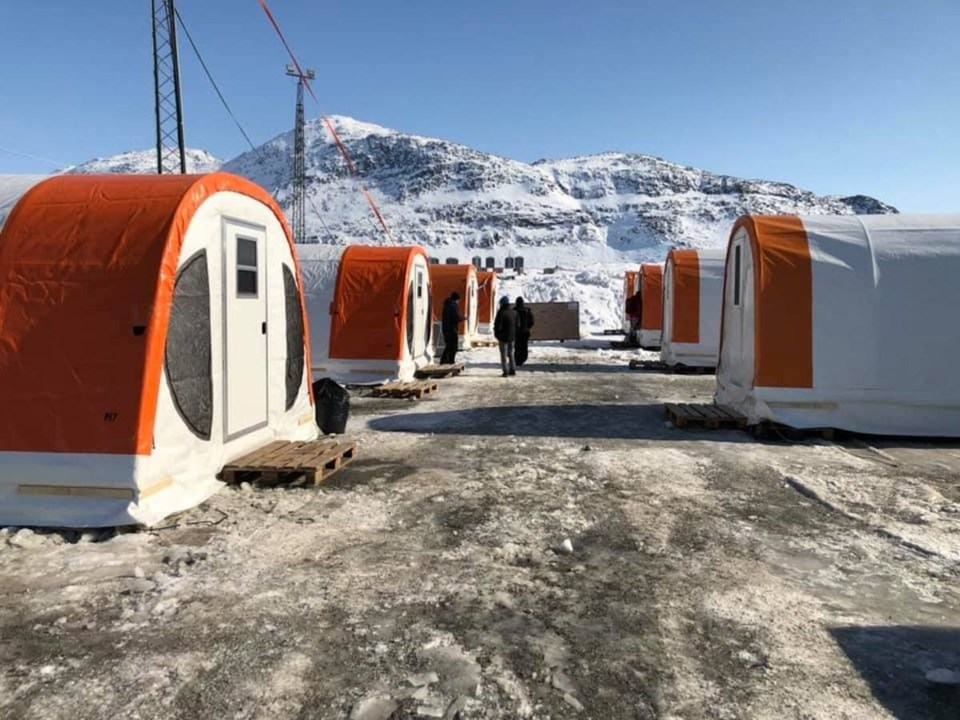2021 marks Weatherhaven’s 40th anniversary in providing shelter systems and mobile infrastructure strategies in response to some of the greatest logistical challenges across the globe.
“Our story is about the evolution of a small B.C. company with a niche product that innovated, developed, and scaled into solutions that service many different verticals and have been deployed in 95 countries around the world,” says Ray Castelli, CEO of Weatherhaven.
Founded in B.C. in 1981, Weatherhaven originated as an outfitter for outdoor explorers engaging in ecotourism activities, such as ski camps and mountain climbing expeditions, by supplying tents and equipment.
The company began doing work in mining exploration markets in regions such as the Arctic, Africa, Latin America, and Australia. What became built into their DNA was a knack for developing shelters that are both protective against extreme climates and fast and easy to deploy. — no matter how remote the environment nor how difficult the terrain.
From there, Weatherhaven has built out a strong engineering team and innovative R&D culture to constantly improve their technology to service a range of industries and purposes — spanning from mining and medical to military and peacekeeping.
In the 1990s, Weatherhaven became involved in a joint development partnership with the National Defense in Canada, providing camps and infrastructures which were used in multiple UN peacekeeping missions, such as Kosovo. On the field, Canada's equipment stood out to other UN nations, and Weatherhaven started getting inquiries from nations such as the US, UK, Switzerland, Brazil, Africa, and Japan to use their solutions.
By the next decade, Weatherhaven was supplying more than 25 militaries around the world with equipment, camps, and shelter systems. Additionally, the company’s work on disaster relief for the Red Cross and United Nations led them to develop medical field hospital solutions.
Medical Field Hospital. Photo: Weatherhaven.
Today, Weatherhaven is experiencing their biggest year yet while on the front lines of the COVID-19 medical response.
By adding an air purification system to it’s successful hospital solution, it is made safer for healthcare workers to operate and treat chronic patients safely and efficiently during the pandemic.
Weatherhaven has applied its portable medical shelter experience in support of the Government of Canada’s Mobile Health Unit (MHU) initiative. Through this program, a number of portable COVID-19 response mobile clinics and field hospitals are deployed within a few days to urban, rural, and arctic environments, supporting provincial and Indigenous governments when necessary.
Over the last three months, the company has deployed 18 hospitals and counting around the world in their commitment to helping nations facing this unprecedented global health emergency.
Aerial Shot of Medical Field Hospital. Photo: Weatherhaven.
From their humble beginnings as a startup to their evolution to a more than $100 million company with over 50 patents and solutions used across industries on every continent, Weatherhaven is an example of a Vancouver success story that is continuing to build its growing presence and impact.
“Looking back at the legacy of what Weatherhaven has been able to achieve in 40 years, it really comes back to finding a niche product, finding the right people, and constant innovation,” reflects Castelli. “We aim to continue building our company by supplying more customers and markets, including emergency response and climate change research in Antarctica.”
Looking ahead to the next 40 years, Weatherhaven is well positioned to respond to emerging trends such as climate change-driven natural disasters, mobile military command and response requirements as well as the search for scarce resource exploration moving into even more extreme and remote locations.
For more info, visit weatherhaven.com.



